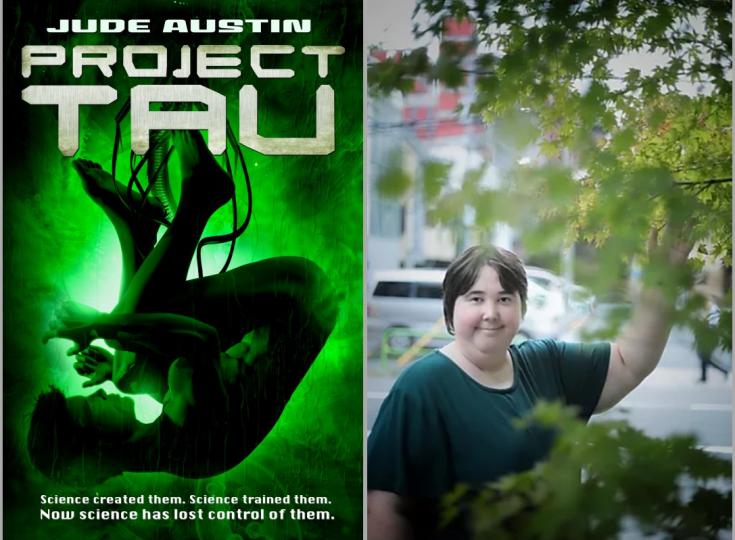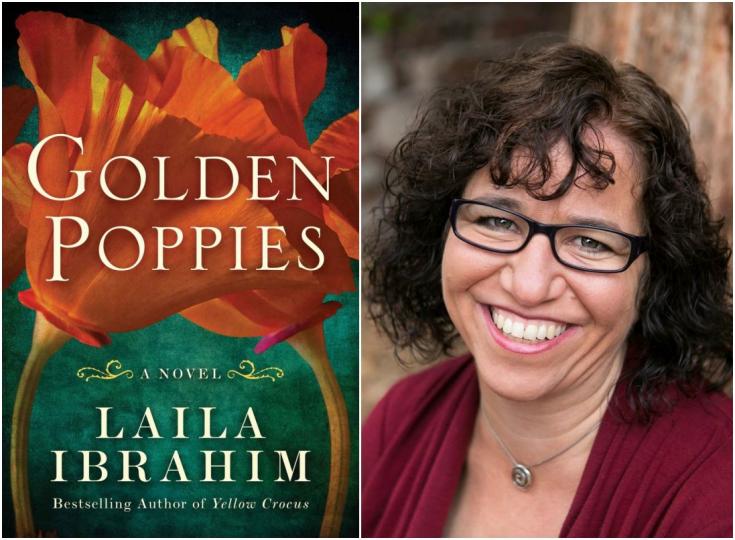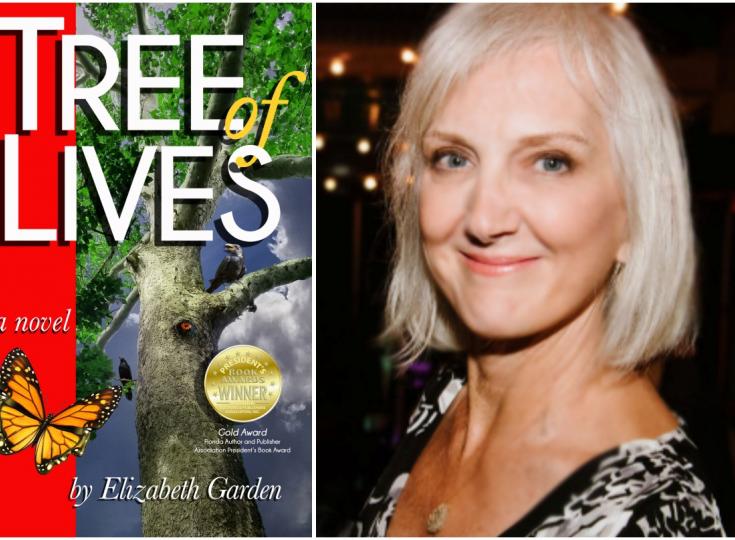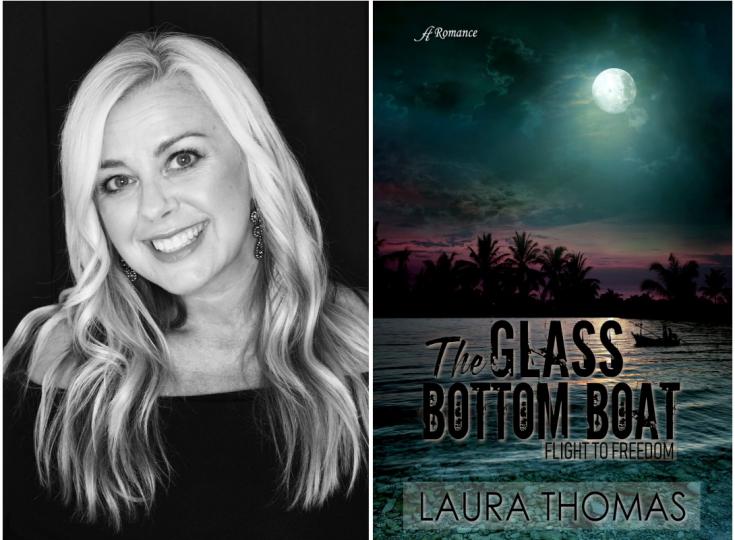Cat Hodge - Classic Christmas Tropes meet Shakespeare
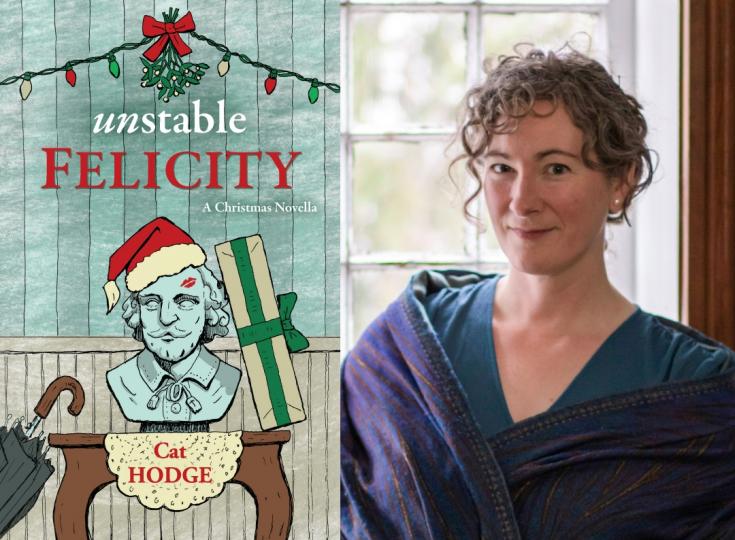
Cat Hodge lives in Delaware, OH, with her husband Brendan and their seven children. This is her first published novel. Her other novels are jealous. As our Author of the Day, she tells us all about Unstable Felicity.
Please give us a short introduction to what Unstable Felicity is about.
Jill O'Leary's December has all the hallmarks of a feel-good holiday special. She's a successful Los Angeles accountant summoned home to small town Ohio to save the family inn. There she'll have to navigate a White Elephant gift exchange, decorate the tree, and meet not one but two tall dark handsome strangers.
But it will take a miracle to make this Christmas merry and bright. Jill's baggage is waiting for her at home: Regina, the demanding mother she hasn't spoken to since her father's funeral four months ago; her two nutty sisters Reagan and Del; Garrett French, a local real-estate mogul trying to snap her family's inn; and Heath Albany, the married ex-boyfriend who's suspiciously eager to reconcile with her.
Jill is determined to get in, fix the family finances by herself, and get back to the big city as soon as possible. But keeping her mother from turning Christmas into a tragedy proves more drama than she can handle on her own. It's going to take her conniving sisters, the division of an empire, sudden blindness, a journey through a pitiless storm, and an unlikely hero to give this tragicomic tale a happy ending.
What inspired you to write this Christmas Novella?
One evening at dinner, my family was discussing an article about the business of Christmas movies, which included a short list of non-negotiable tropes: snow, picking a tree, Christmas parade, the meet-cute, etc. We had fun making our own list, but we wondered: what if the world's greatest literature were retold as Christmas specials? For example: could you turn the family drama of King Lear, Shakespeare's great tragedy, into a feel-good holiday story, and use classic Christmas tropes as major plot points? Unstable Felicity is my answer to that dinner-table challenge.
Tell us more about Jill. What makes her tick?
When we meet Jill, she's having a breakdown. She's spent her adult life crafting a mature competent persona, in contrast to her volatile teenaged self. But this detachment has been bought at the cost of pushing away everything that reminds her of her past, particularly her toxic mother. And when Mother calls at Christmastime and demands that Jill come home to help save the family business four months after the death of her father, the very sound of her voice makes Jill feel sick. As Jill travels back to Ohio to handle the business side of her family troubles, she also has to confront the cracks in her perfect facade revealed by her grief over her father's death and her frustration with her mother. Fortunately, she finds that she's not the only broken person in her small town, and that healing and support -- and love -- come when she least expects it.
How much fun did you have with turning Christmas story tropes on their heads?
More fun than a kid tearing wrapping paper off presents on Christmas morning!
Readers say your story feels emotionally honest - how did you pull this off?
I take "emotionally honest" as a great compliment! I believe that the smallest, most personal choices have the greatest moral impact on the world, for good or ill, and resonate long after greater events are forgotten. When I write, I want every character, no matter how minor or comic, to be a full person, not a caricature who exists to serve the story. Even the tiniest interaction carries the potential for grace to break through our human limitations -- and every character has the dangerous gift of free will to be able to reject or ignore that grace, to hurt themselves and others.
Besides writing, what other secret skills do you have?
My degree is in theater. I've never made more than minimum wage (and generally less) working in the field, but I've used the skills I learned in acting and directing classes every day of my life. I think there's no better preparation for writing fiction than studying theater: understanding character choices and objectives, and crafting a dramatic arc to scenes, chapters, and entire novels.
I have seven children, and I homeschooled them even before it was cool. Homeschooling requires either a lot of organization skills or a Type Z personality, and I'm definitely on the Type Z side of that divide. Having seven kids isn't exactly secret, especially if you're within earshot of my house, but I've developed a remarkable ability to tune out random noise, and to wake instantly at the sound of a child breathing in my doorway.
Why did you decide to mix some of Shakespeare's King Lear into the story?
Partly because a Shakespearean tragedy is diametrically opposed to a Hallmark Christmas story, and partly because the dysfunctional family dynamics of King Lear fit right into the holidays. A needy parent rewarding his daughters according to which one makes the biggest deal about loving him the most -- sounds like just another holiday dinner, doesn't it? Jill's character was born when I wondered what it must have been like to grow up with a father like King Lear -- no wonder some of his daughters couldn't stand him. But you don't have to be a Shakespearean scholar to enjoy Unstable Felicity. It's simply another layer of fun if you can spot names and quotations and themes from Lear.
Why did you title this "Unstable Felicity"?
"Unstable felicity" is a phrase attributed to the historical King Lear by an ancient British chronicler. Everything Lear valued -- power, wealth, control -- only brought him temporary peace, an "unstable felicity". I thought it was the perfect phrase to describe Jill's attempts to deal with her past not by doing the difficult work of healing, but by pushing all of her hurt deep inside.
Why, do you think, does Christmas cause so much pressure within families?
Every holiday can be a flashpoint for family tension because the expectations are piled so high. Christmas is particularly fraught because it has a reputation for being a family celebration of peace and goodwill and nostalgia, so people feel like they're failing if they can't manufacture these feelings about the holiday, or their families. Broken people such as Jill's mother Regina often work hard to create a perfect external Christmas -- the decorations, the gifts, the food -- as a kind of substitute for true inner peace and charity, and they find any disruption to a perfect external celebration a threat to their happiness. That is, of course, the exact opposite of the first Christmas, which was external chaos, but gloriously joyful at the deepest, most intimate level.
Do you have any interesting writing habits? What is an average writing day like for you?
I write late at night, after the kids have all gone to bed, and the bulk of my writing happens after midnight. I need the mental space of knowing that I have hours of uninterrupted time to work. It's not actually a sustainable lifestyle, but until I have an office and a full-time staff to run my house and feed my family, it's what works for me.
What are you working on right now?
My next novel, Strange Plots, will come out next fall. It's the story of a young woman tracing her unexpected family background after her grandfather takes a DNA test, and moves between 2019 detective work and Depression-era feuding between clans in the mountains of Virginia. And because I wanted a bigger challenge than creating the Hallmark version of King Lear, Strange Plots uses Fall and harvest tropes as a framework for retelling Titus Andronicus, the bloodiest of Shakespeare's revenge tragedies.
Where can our readers discover more of your work or interact with you?
My husband Brendan and I post updates on our novels and our adventures in self-publishing through our Oak & Linden newsletter:
